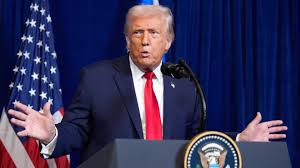OPINION: ITU, Green Digital And Climate Change

The 28th edition of the United Nations Conference on Climate, commonly referred to as the Conference of Parties(COP28) ended in Dubai, United Arab Emirates (UAE) yesterday.
On the sidelines of COP28, the International Telecommunications Union(ITU) hosted the Green Digital Action Conference which is expected to proffer technology solutions in resolving some of the problems of fossil emissions and their negative impacts on the environment.
“Digital technologies can be a key ally in tackling climate change,” said Doreen Bogdan-Martin, ITU Secretary-General.
“These Green Digital Action commitments show that the digital sector can lead the way in using tech for climate action while also reducing its impact on the environment.”
Specifically, members of the global tech sector committed to increasing action to help solve the climate crisis through Green Digital Action at COP28 in Dubai, United Arab Emirates.
The commitments from tech companies and governments – including mitigation and adaptation efforts – came at the first Green Digital Action series and signal the advance of digital technology in support of climate action” according to ITU documents.
There was a pledge by the mobile telecommunication and satellite industry to support the early warnings for all initiatives through cell-broadcast and direct-to-device services to protect everyone through life-saving disaster alerts by 2027.
There was also a pledge by the public sector to implement cell broadcasts using a regulatory approach.
“Through Green Digital Action, ITU, the UN tech agency, aims to bring the entire digital technology sector together to speed up collective efforts on the climate crisis” the document added.
“The digital technology sector is giving us reason for hope with their clear commitments on climate action,” said Tomas Lamanauskas, ITU Deputy Secretary-General, who convened Green Digital Action.
“We will work with our tech partners to ensure follow-through on these commitments with the aim of expanding and strengthening them in the future.”
Green Digital Action took place from December 2 through 9 at COP28 to announce tech sector commitments and to accelerate action. The outcomes are the result of a nearly year-long effort involving over 40 partners – including industry associations, UN agencies, governments, and businesses – to unite the global digital community, develop collaborative solutions, and step up climate action across the industry.
In areas such as climate monitoring and big data research, technology can identify climate trends and provide guidance on solutions. Technology can support adaptation through early warning systems, as well as mitigation efforts by boosting energy efficiency, building green networks, and developing circular economies.
The tech industry is estimated to be responsible for between 1.5 to 4 per cent of global greenhouse gas emissions. Growing data storage and processing needs, including AI systems, are further increasing the sector’s carbon footprint and require a significant amount of energy.
Some of the outcomes of Green Digital Action at COP28 were Corporate agreements on reducing greenhouse gas emissions following science-based targets aligned with the goal of limiting climate warming to 1.5oC and creating transition plans as well as increasing transparency on emissions data across the tech industry.
There was also Cross-country collaboration to develop e-waste regulation as a key vehicle to foster a circular tech industry.
A joint statement was signed by the leading international standards developers – ITU, International Standards Organization (ISO), and International Electrotechnical Commission (IEC) on the importance of sustainability being built into technical standards development by design, and standards helping the world reach net-zero emissions and achieve a resource-efficient circular and low-carbon economy.
The conference also agreed to the Strengthening of industry and country collaboration on the implementation of environmental sustainability standards through an action plan.
Although it’s not clear how it played out for African nations, without being told, the impacts of climate change are already hitting Africa hard.
Rising temperatures, erratic rainfall, and extreme weather events are a daily reality for many across the continent. The urgency is palpable. With this in mind, the delegates from Africa came together to discuss and shape their continent’s response to the climate crisis.
The decisions made by African negotiators at these meetings could shape the COP agenda. Negotiators, stakeholders, and government officials coordinate their positions and strategies, iron out differences, and align their goals, helping to make COP itself more effective.
A position paper is yet to be released especially conscious of its position as a continent that has much to teach the rest of the world because it’s not a continent that is a victim of climate change, but a beacon of resilience. From indigenous knowledge to grassroots innovations, the continent is home to inspiring stories of communities battling adversity.
Africa bears the brunt of climate impacts, from extreme weather events to shifting agricultural patterns
The sun-soaked continent is keen to harness its abundant renewable energy potential. African nations are putting their weight behind solar and wind power to combat energy poverty and reduce carbon emissions.
African negotiators pushed for equitable financial support to fund climate initiatives. They want a fair share of climate finance, ensuring no one is left behind in the race against climate change.
It’s not just about asking for help; it’s about building local expertise. Africa wants to empower its people with the knowledge and tools to tackle climate challenges head-on.
Nature is Africa’s best friend in this fight. Conservation, reforestation, and sustainable land use are high on the agenda.
Seeing climate change as a team sport, African negotiators sought for opportunity to foster partnerships knowing that they could bring about real change through unity.






